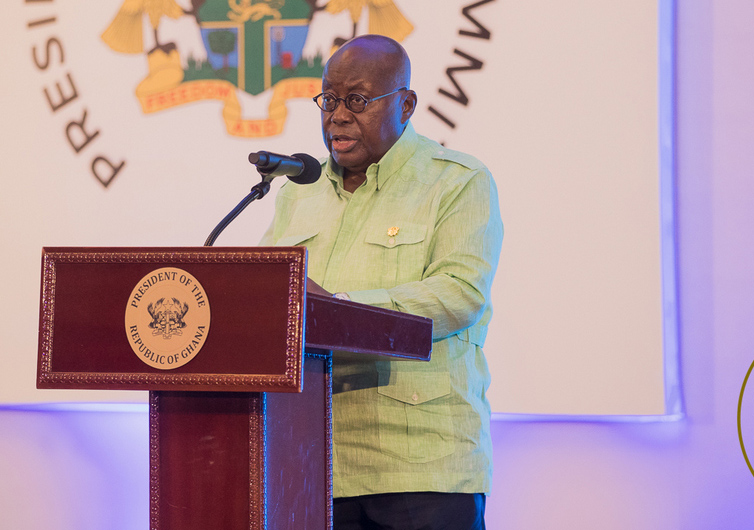
Government, private sector dialogue on Ghana Beyond Aid
The first-ever Presidential Business Summit to create a platform for open and frank discussions between the government and the private sector on critical issues began in Accra yesterday.
The summit, which ends today, will also ensure constructive dialogue between the government and the private sector to realise the vision of a Ghana Beyond Aid.
Advertisement
It will further discuss issues of interest to the private sector, carefully chosen to ensure that the outcome will be an actionable business compact, with clear commitments on both sides.
Deliberations
The deliberations will focus on five cross-cutting thematic areas, including fiscal and non-fiscal incentives to support production and private sector development, foreign exchange regulation and currency stability and access to finance and cost of capital.
The rest are energy pricing, availability, access and reliability, and support for local industries through government procurement and local content regulation.
There will be break-out sessions for a deep dive into seven economic sectors on agriculture and agribusiness, manufacturing, construction and mining, financial services, information and communications technology, tourism and hospitality and transport and logistics.
Deliberations at the summit will feed into the government’s policy framework for private sector development and included in the Budget Statement and Economic Policy from next year.
Private sector
President Nana Addo Dankwa Akufo-Addo, who opened the summit, gave an assurance that the government would fulfil its obligations under the compact and expressed the hope that the private sector would do likewise.
He noted that his administration fully recognised the resilience and ingenuity of the private sector that could guarantee economic growth, create substantial job opportunities for the youth and strengthen Ghana’s position as an economic powerhouse in West Africa.
He said he had directed ministers and heads of state institutions to participate fully in the summit to ensure fruitful outcomes.
The President recalled that on assumption of office, the government had launched a comprehensive programme for industrialisation on 10-points, among them being the One-district, One-factory initiative, the diversification of the economy beyond cocoa and gold, the development of industrial parks and special economic zones.
Others were the development of small and medium enterprises (SMEs), the establishment of business resource centres, as well as technology solution centres, in various parts of the country.
Macroeconomy
On the macroeconomic front, President Akufo-Addo said the government’s policies and programmes had led to consistent economic growth, making Ghana one of the world's fastest-growing economies, the leading recipient of foreign direct investments (FDIs) in West Africa and one of the most attractive investment destinations on the continent.
IMF
The President also referred to exiting the extended credit facility (ECF) programme of the International Monetary Fund (IMF), noting, however, that unfortunately, the global economy was struck by the COVID-19 pandemic, which disrupted the global economic order and eroded some of the significant gains the government had made in the management of the economy.
He said Ghana had taken bold measures necessary to stem the risk of the recession, mitigate the negative economic impact of the pandemic and significantly reduce its burden on the population.
President Akufo-Addo recognised the unflinching support, creativity and fortitude of the private sector, coupled with the effective management of the crisis by the government, which had seen the economy outperform those of its peers and rebounding faster than envisaged.
Recovery
The Minister of Trade and Industry, Mr Alan Kyerematen, said as countries began to search for economic modules to turn their fortunes around, in Ghana it had become apparent that it was the private sector that could drive the recovery efforts.
He said on the onset of the pandemic, it was the private sector that marshalled its forces to provide personal protective equipment (PPE) and others, including pharmaceutical products, while at the same time the private sector was making efforts to provide vaccines.
Those interventions, he explained, were indications that the role of the private sector could not be underestimated, hence the summit.



